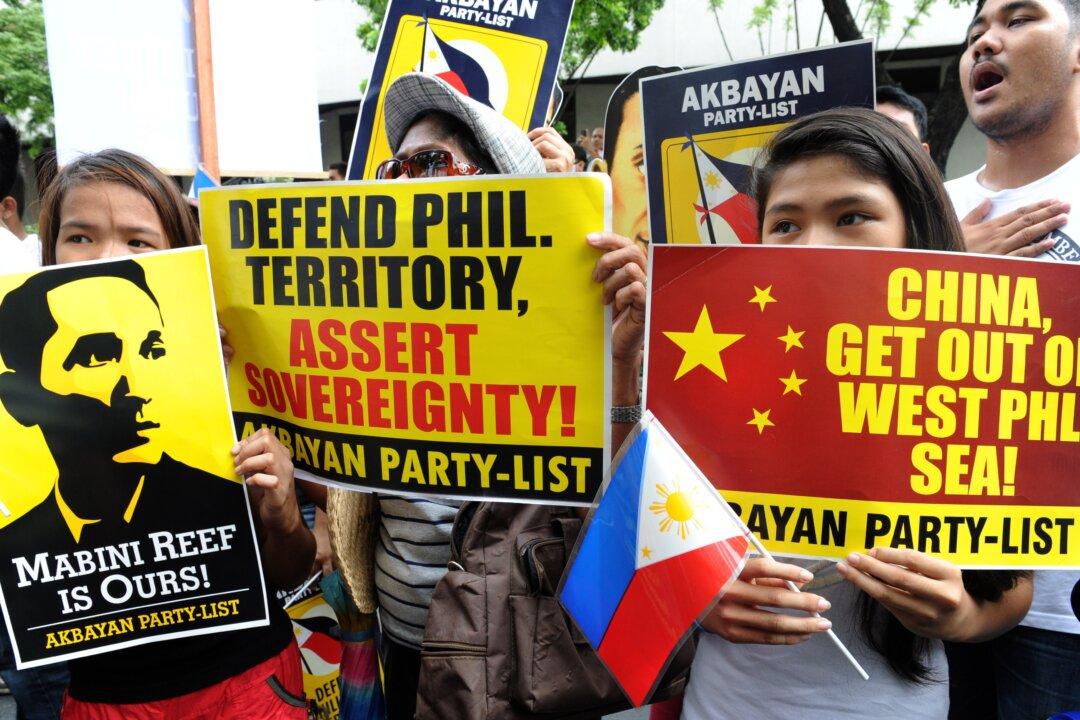The protracted legal battle in the South China Sea dispute, initiated by the Philippines and to be decided July 12 by an international court in The Hague, has been gaining plenty of attention—not least from the Chinese authorities, who have variously described the proceedings as “law-abusing,” “widely-contested,” or nothing more than “a piece of trash paper.”
But even as Beijing rejects the authority of the Permanent Court of Arbitration out of hand, while seeking to build a facade of legitimacy for its own positions, there are indications that the communist regime has tried to influence the outcome of the ruling clandestinely.
In November 2013, months after Filipino authorities initiated the case, the Chinese ambassador to the United Kingdom requested a meeting with the president of the tribunal despite his country’s public disavowal of the court.
The response was subtle but clear: as noted by Filipino journalist Alfredo C. Robles, Jr. in a blog post on July 10, the tribunal sent reminders to the participating parties to refrain from closed communication with members.
“If a Party wishes to express its position on matters in dispute, it should be aware that such statements will be made available to all members of the Tribunal, the Registry and the other Party,” the tribunal stated.
The tribunal also stated that previously, a representative from the Chinese embassy had discussed informal questions with the court’s registry.




